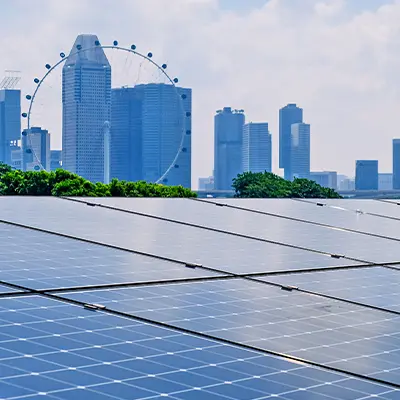Singapore has decided to move decisively and fast-forward its ambition to achieve net-zero emissions by or around mid-century in a bid to sharpen its competitive edge and capture growth opportunities in the green transition.
In his Budget speech on Friday (Feb 18), Finance Minister Lawrence Wong said Singapore is on track to achieving its 2030 target.
While the country is disadvantaged given its lack of natural renewable energy sources, green technologies have been improving rapidly and alternative low carbon solutions and hydrogen are starting to look more plausible.
"We will therefore raise our ambition to achieve net zero emissions by or around mid-century," Wong said. Previously, the goal was to achieve net zero emissions as soon as it was viable in the second half of the century.
To achieve the new net-zero ambition, Singapore will raise the current carbon tax of S$5 per tonne to S$25 per tonne in 2024-2025, and S$45 per tonne in 2026-2027, with a view to reaching S$50 to S$80 per tonne by 2030.
From 2024, businesses will be allowed to use high-quality international carbon credits to offset up to 5 per cent of their taxable emissions in lieu of paying carbon tax. As for households, the government will provide support such as additional "u-save" rebates to help cushion higher utility bills.
The coming decade would see a greening of traditional sectors of the economy such as aviation, energy, and tourism.
"At the same time, emerging green sectors like green finance and carbon services will grow in prominence. Millions of new green jobs will be created around the world and demand for talent with green skills will increase," said Wong.
By moving quickly, Singapore will be able to build on its competitive advantages and capture new opportunities.
"We can become the go-to location in Asia for expertise in carbon services and the trusted regional marketplace for carbon credits. As a key node for international air and sea transport networks, we can become a frontrunner in the development of sustainable aviation and marine fuels," he said.
Green finance is one of the fastest growing segments in the financial services sector. Singapore accounts for close to half of the Asean green bond and loan market.








